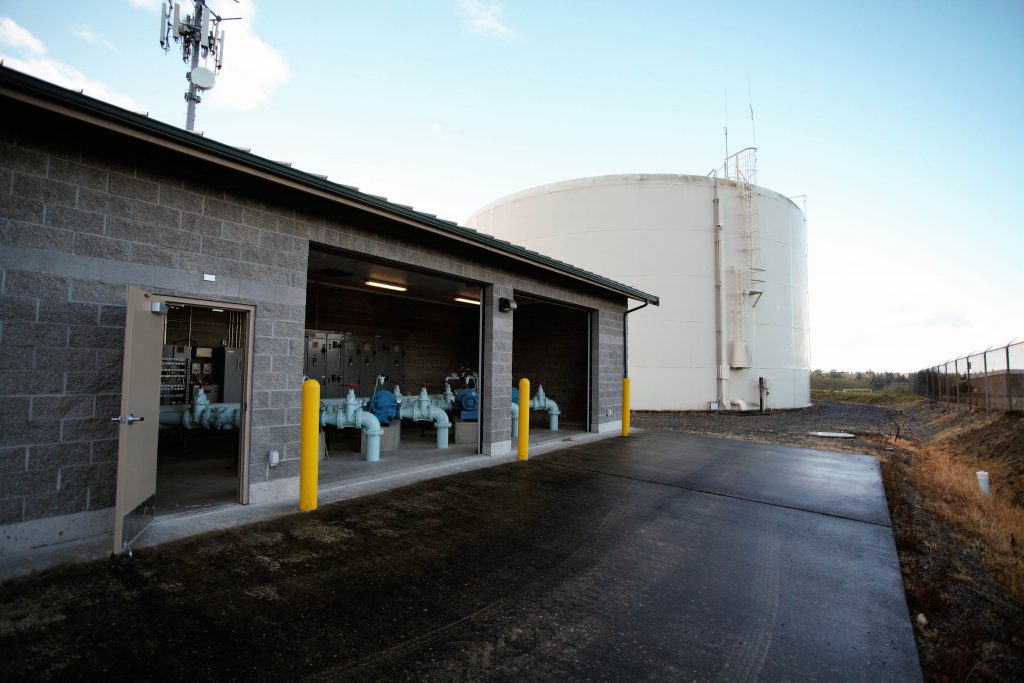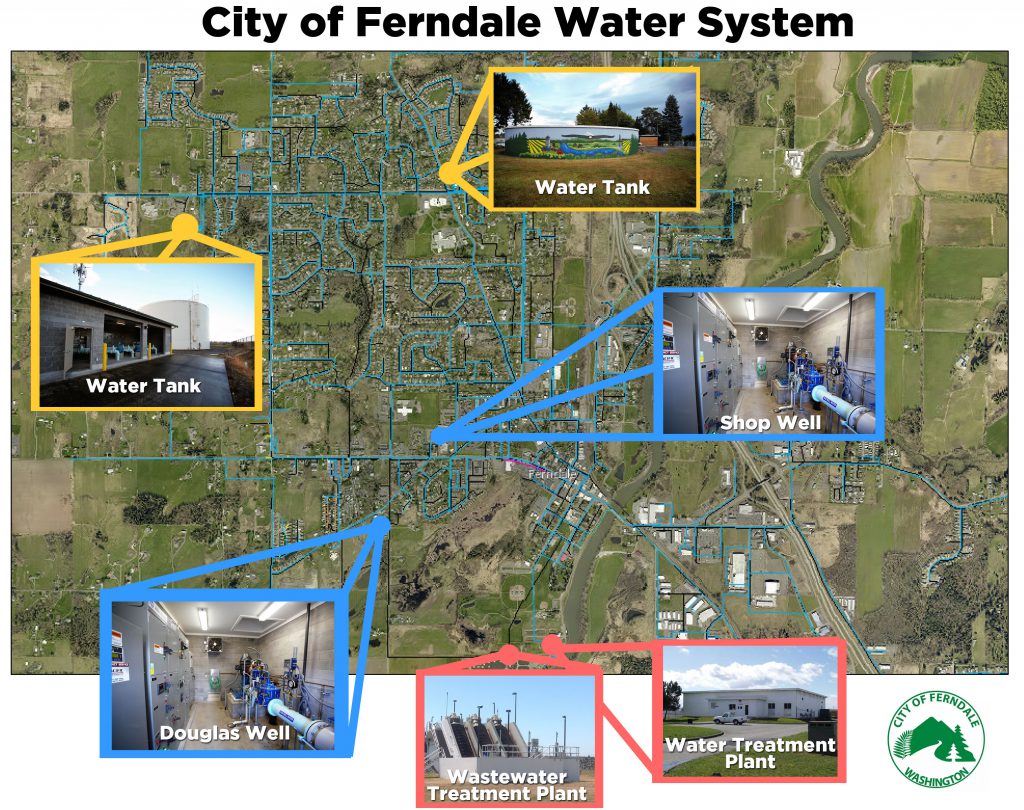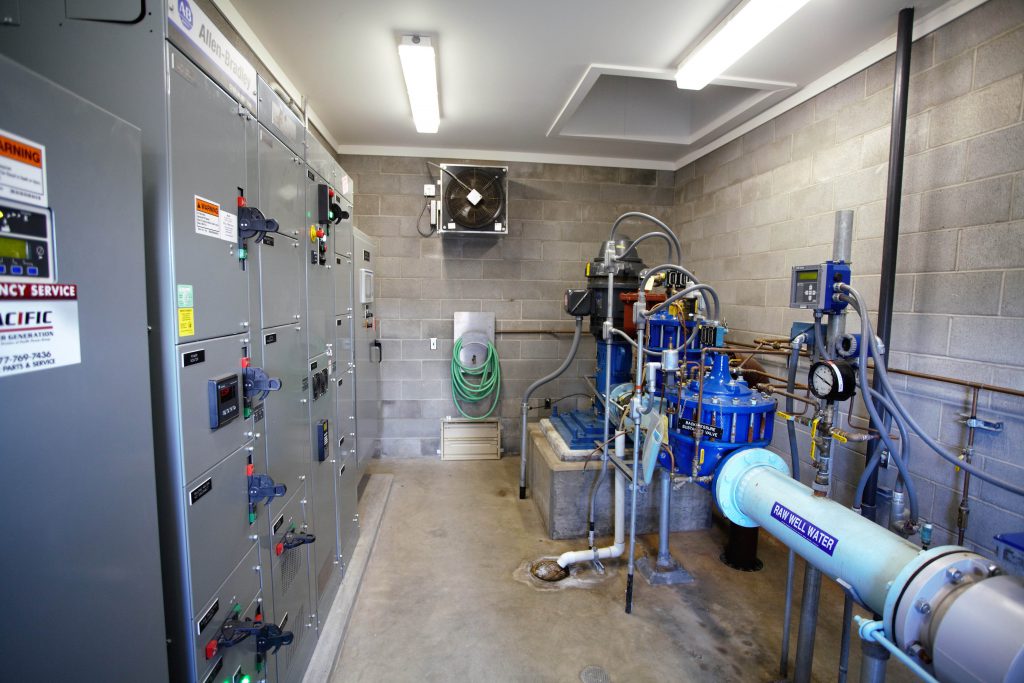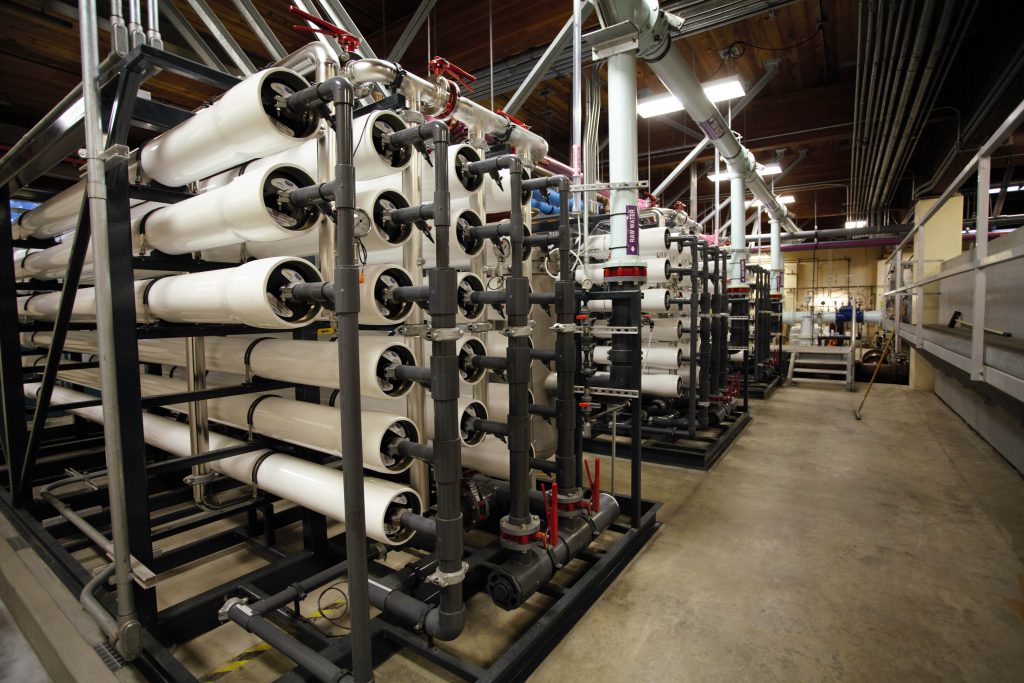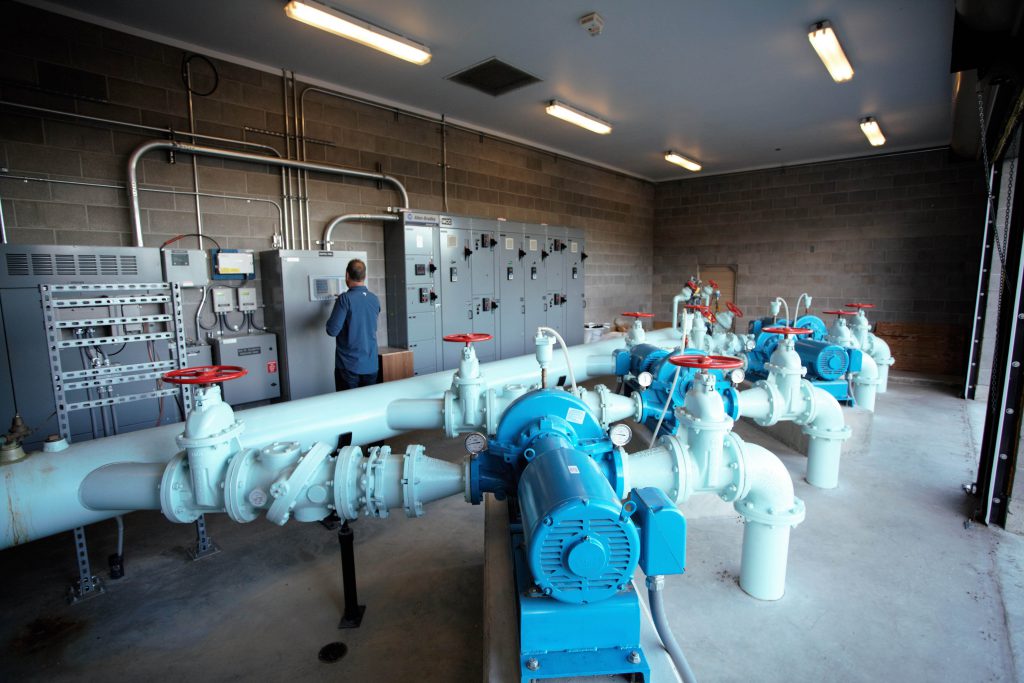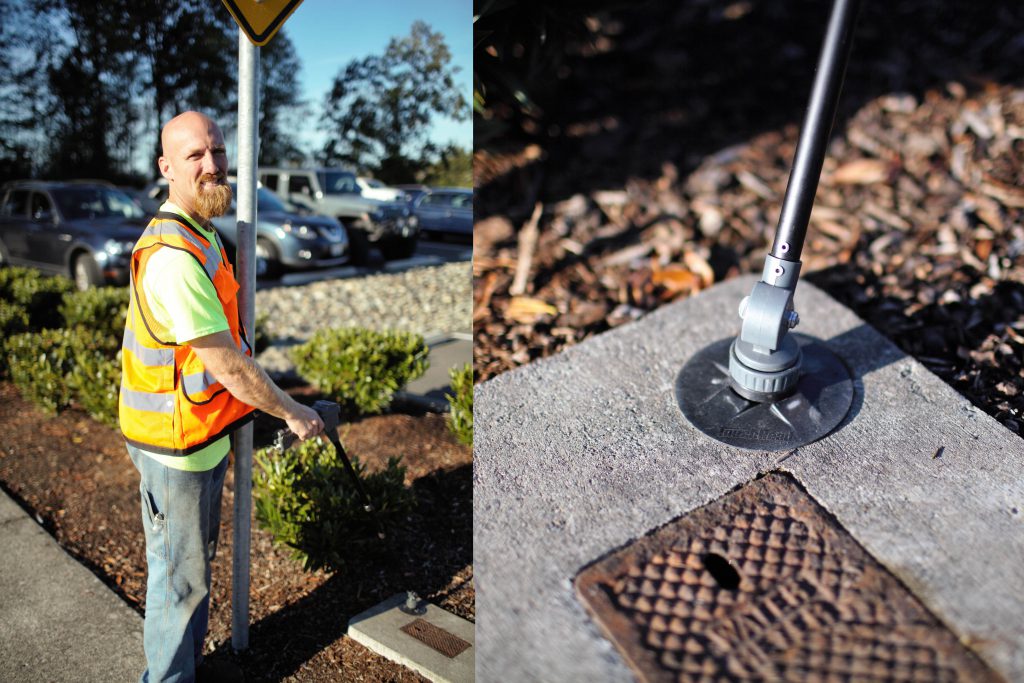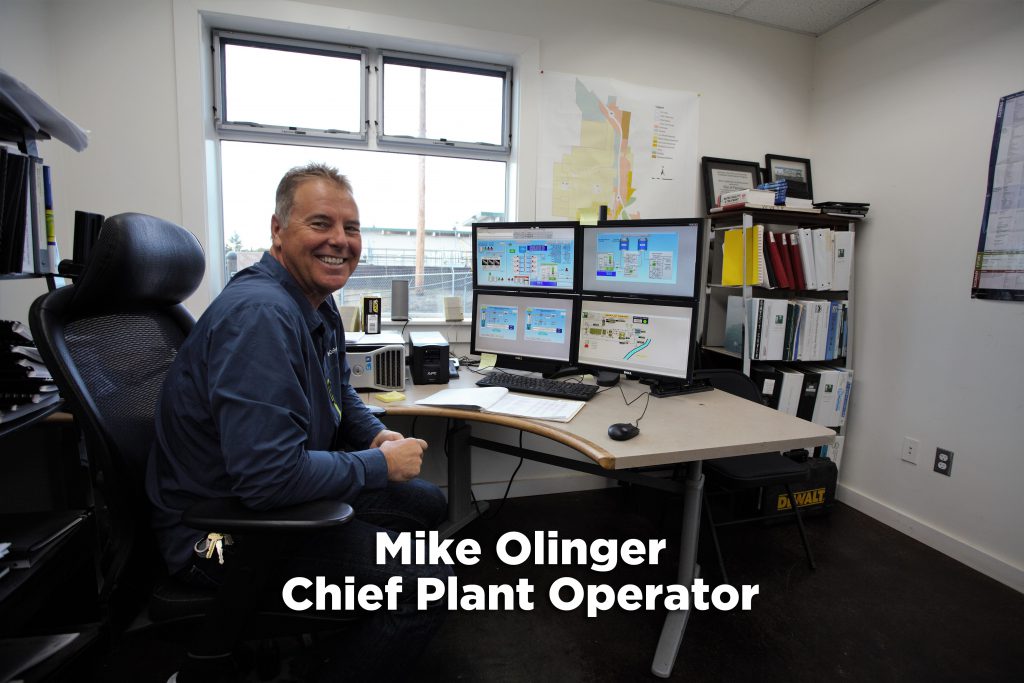Water in Ferndale – From Well to Faucet
The City of Ferndale operates and maintains a top-notch water system that ensures when you turn on the faucet, you have clean, quality, reliable water when you need it. The City works hard to maintain this infrastructure and to help answer questions about your city water, here’s a detailed look at our entire water system.
Where Does Our Water Come From?
Before 2011, the City purchased primary, settled (“raw”) water from the Nooksack River by way of the Whatcom County Public Utility District No. 1. That water had to then be treated at the City’s Water Treatment Plant to make sure it was up to State and Federal drinking water standards. For several reasons, the City concluded that shifting its source of water supply to groundwater was the best decision. The City then proceeded to make necessary capital investments to make that transition.
In December 2011, the City of Ferndale converted to a groundwater supply for its drinking water, reusing water rights previously used for well water access from the 1950s to the 1970s.
There were concerns over the hardness of this groundwater, so in October 2014, the City added a reverse osmosis system which substantially reduces the hardness of the City’s water supply, returning it to levels experienced when the City used the Public Utility District’s Nooksack river water.
Ferndale’s Wells
The City has two water production wells – the “Douglas Well” located just off Douglas Avenue and the “Shop Well”, located within the City’s Public Works yard off of Legoe Avenue. Both wells are drilled to a depth greater than 150 feet and are within the same aquifer.
The City’s water rights allow us to withdraw a specified maximum amount, both in instantaneous withdrawal and maximum annual withdrawal. A water withdrawal area is also established by our water rights, defining the geographic boundaries within which we are allowed to drill additional wells.
For more information on how watersheds are determined, click here for more information from the U.S.Geological Survey.
The City is currently drilling a third well and has plans for additional wells to meet production demand, as well as provide redundancy for our water system.
For more information on groundwater in Whatcom County, click here for studies provided by the WRIA 1 Watershed Management Project.
How Do We Ensure Our Drinking Water is Safe?
The next stop after the well is the Water Treatment Plant. Our treatment facility is staffed by three employees, under the supervision of Chief Plant Operator Mike Olinger, who has spent over twenty-five years working for Ferndale to keep our water safe and secure.
Per day, the City can treat 4.1 million gallons of water, that’s enough to fill sixteen Olympic sized swimming pools!
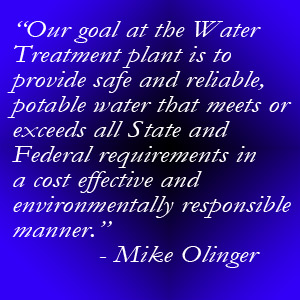 With the conversion to well water, this goal was met with simple filtration to remove Manganese, followed by chlorination to provide disinfection as required by the Department of Health for the distribution system. Using this filtration and disinfection system, the City met or exceeded all State and Federal requirements.
With the conversion to well water, this goal was met with simple filtration to remove Manganese, followed by chlorination to provide disinfection as required by the Department of Health for the distribution system. Using this filtration and disinfection system, the City met or exceeded all State and Federal requirements.
There were customer requests to go farther, so the City decided to further treat the water utilizing a reverse osmosis system (a type of microfiltration) to reduce overall hardness and improve taste.
The resulting water still meets all State and Federal guidelines for safety, as well as better meeting most customer’s expectations for taste and overall aesthetics.
While our well water has a higher overall hardness, it requires less chlorine to disinfect than surface water from the Nooksack, a common taste complaint. You can find a full water quality analysis, including detailed breakdowns of our test results, in our Customer Confidence Report, which comes out in July every year.
How Does Drinking Water Get to My House or Business?
Once the groundwater has been treated, it travels through our system of pumps, storage tanks and over 70 miles of pipe. The Water Treatment Plant provides the initial pumping necessary to get the water into the system where booster pumps lift the water to higher elevations within the City. The water is pumped into two storage tanks. These tanks provide backup capacity and gravity flow to ensure stable water pressure once it reaches your faucet.
Staff constantly monitors the flow of water within the system and adjusts well pumping rates and storage levels to ensure the water is flowing smoothly and safely.
How Does the City Determine How Much Water I Use?
Each residence has a metered connection to our water system which is read by a Public Works crewmember every two months. The City utilizes a “touch read” system that accurately collects the electronic data directly from each meter, which is then uploaded to our billing system.
For every 100 cubic foot blocks of water, you are billed for one “unit” as seen on your bill, or to describe it another way, each unit equals 748.052 gallons of water.
The City currently has approximately 5,000 single family water customers both inside and outside the City limits. In 2016, the average water use per customer was 11.3 units of water per billing cycle (two months), with an average low of 9.7 units in December and a high of 13.2 units in October due to summer irrigation.
- 58.9% of customers use 10 or fewer units of water per billing cycle
- 9.3% of customers use more than 20 units of water per billing cycle
- In 2016, we metered 464,513 units of water for all our customers. That’s almost 7 million bathtubs worth of water in a single year!
The City continues to make investments in our water infrastructure, utilizing the advances in computerized monitoring and engineering to move water efficiently through our water system.
That’s how the water gets from the well to your faucet. For information on how the billing is calculated, click here to “Explore Your Water Bill”. For any questions about our water system, please call Chief Plant Operator Mike Olinger at (360) 384-4607.

